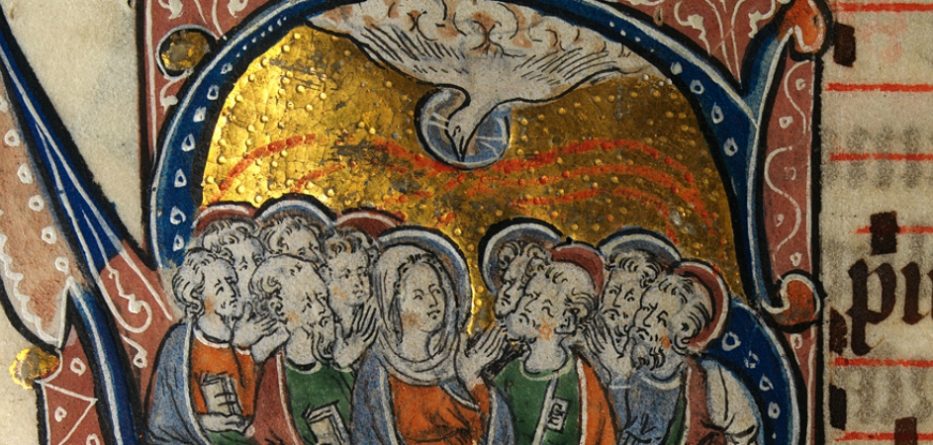Today we celebrate the feast of Pentecost.
In Old Testament times, the Chosen People probably took on this agricultural feast from the Canaanites. Celebrated seven weeks (or 50 days) after the feast of the unleavened bread when the first barley was harvested, this harvest festival was a day of great rejoicing, marking the end of the harvest with leavened loaves being offered in thanks. This agricultural feast then took on added significance for the Jews after the Exodus, marking the date of their arrival at Sinai where the covenant was revealed.
For us Christians, fifty days after the resurrection of Jesus, we celebrate that distinctive Pentecost day recounted at the commencement of the Acts of the Apostles when the disciples from anywhere and everywhere had gathered in a house in Jerusalem each hearing the Galilean apostles preach in their own language.
They heard, understood and relished messages ‘about the marvels of God’. Thereafter the Acts of the Apostles recalls many instances of divisions within the emerging Christian community – with differing approaches by Peter, Paul and James. Within the Jewish community, there are divisions about what the following of Jesus might mean for them. And there are even greater divisions within the Jewish community as to what should be the requirements for Gentiles wanting to follow Jesus while co-existing with Jewish Christians. In the midst of all these controversies, Paul always insists that there is a variety of gifts, but always the same Spirit.
This year, as always, Pentecost falls during the Week for Christian Unity. And this year distinctively for us Australians, it falls during National Reconciliation Week with the theme chosen by Indigenous people: ‘In this together’. In the midst of our differences and in the light of our history, how do we celebrate the gifts of the Spirit, how do we discern the gifts of the Spirit, and how do we share these gifts?
Read the article by Fr Frank Brennan in Catholic Outlook.

